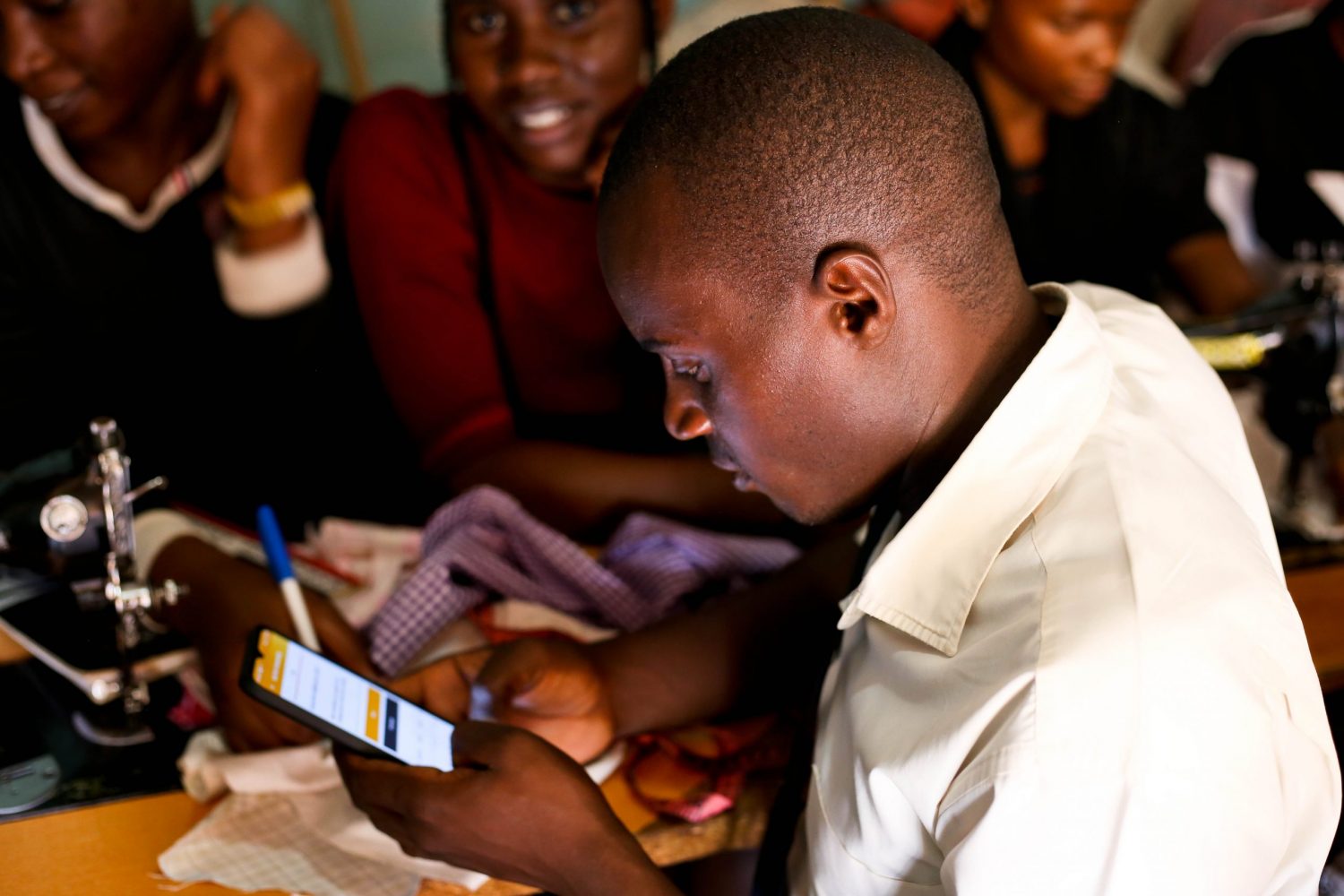
Jackson, a volunteer with Civil Society Unleashed (CSU), uses Integrity Action’s DevCheck app to monitor Ssomero Uganda, a project in Kampala. Photo Credit: Anthony Mwami/Restless Development
I have a confession to make. I work for an organisation whose work is … how shall I put it? A little challenging to sustain.
This is hardly unusual. There are plenty of projects in the sphere of transparency and accountability, and broader social change and development, that have struggled to keep activities going when the funding tap turns off. Even when sustainability does not rely on activities continuing, we don’t often see evaluations going back to projects one, two, or five years later to see what results have endured.
At Integrity Action, rather than relying on the hope that outcomes will somehow linger, we have decided to explore this issue head-on. Since early 2020 we have been researching the sustainability of “citizen-centred accountability” initiatives, a term we are using to describe approaches or mechanisms in which citizens feedback on or scrutinise key services they are entitled to, and ultimately hold them to account. Such approaches include social audits, procurement monitoring, mobile-based feedback systems, or citizen monitoring.
We are planning a series of knowledge products on the research over the coming months – and we are beginning with these two:
- A briefing note introducing the research, presenting some high-level conclusions, and putting forward a framework for thinking about (and planning for) sustainability in social accountability; and
- A brainstorming survey which we invite you to complete. It’s aimed at those working in the transparency and accountability field, anywhere in the world. It looks into some key questions about how citizen-centred accountability mechanisms can be funded, governed, and administered in the long term. The survey will be live until the end of November, and we will present results shortly afterwards.
To date, the research has involved 25 interviews with figures from civil society, government, and beyond; a literature review; and further interviews and focus group discussions with project partners, stakeholders, and citizens involved in Integrity Action’s work. So far, we have learned that sustainability is not often discussed in social accountability and related literature and that there is a wide range of perspectives on the issue and no unified understanding of what it means for this field.
For Integrity Action, it has also helped us get to the bottom – or rather, towards the bottom – of some challenging issues that we have encountered in our work. Issues like: should citizens be paid anything for taking part in citizen-centred accountability projects? Is the use of technology in such mechanisms a likely barrier to sustainability? And, do such mechanisms actually need to last indefinitely anyway?
This final question is key and highlights that we have not approached this research with the view that everything needs to be sustained. That said, demonstrating that you are “in it for the long game” could be one way of convincing reluctant stakeholders that a particular mechanism cannot simply be ignored or “waited out”.
Furthermore, two particular issues emerged that we felt merited deeper exploration as well as fresh perspectives. Or to put it more bluntly, we got stuck and felt the need to generate some more innovative thinking. These two issues are the subject of our brainstorm.
The first issue concerns sustaining funding. Although some of our interview partners have pointed us towards some innovative funding ideas – like setting up a community foundation or developing a consulting line that subsidizes operations – most of the conversations in the literature and policy world seem to revolve around conventional formats of donor and government funding. So what else is out there? And what innovative ideas could be tried?
The second, highly related issue, concerns “ownership” – a term we use to describe how a citizen-centred accountability mechanism would be governed and administered in the long term. Who makes the decisions, and how? Who has the power to turn it off or otherwise reduce its ability to produce uncomfortable findings?
The issue of independence is central here. On the one hand, it might be better if such mechanisms don’t rely on funding from the institution they are holding to account. Then again, such funding might be a signal of genuine buy-in and willingness of the institution to respond to citizens’ concerns, which is critical if any tangible benefits are to be realised.
Again, we are interested to hear about innovative models that have been or could be employed. What would hybrid governance arrangements look like? Are we talking multi-stakeholder steering groups, or housing it in a semi-autonomous arm of government? And are there successful examples of transition – when a mechanism incubated outside government has been shifted into government ownership (or even vice versa)?
We encourage you to share the survey link with colleagues and contacts who might have something to share. We look forward to sharing an analysis of results shortly after the survey closes at the end of November. Meanwhile, you can find the home page for this research here, which is where we will add links to all further knowledge outputs over the coming months.
—
Derek Thorne is Head of Programme Development at Integrity Action and is always happy to discuss these issues – Tweet him @dfthorne1 or reach out via [email protected].


